Updated date: 05/05/2025 05:17:02
Dong Thap Newspaper respectfully introduces an article by General Secretary To Lam, titled "Institutional and legal breakthroughs for the country to rise up".
In the process of leading the Vietnamese revolution, our Party has always been deeply aware of the role of institutions and laws in the development of the country. At the same time, the Party has put forward many guidelines and policies on perfecting institutions and laws in accordance with each historical period and achieved many important results. The thinking and theoretical awareness of the socialist rule of law state have been constantly improved.
Our country has established a relatively synchronous, public, transparent, and accessible legal system that basically regulates all areas of social life, including the Constitution, major laws and codes on civil, business, commercial, administrative, criminal, procedural, dispute resolution and about 300 other laws and codes that are still in effect; creating a legal foundation for socio-economic development, ensuring national defense, security and international integration.
T
General Secretary To Lam (Photo: VNA)
It can be affirmed that over the past 80 years, since the birth of the Workers' and Peasants' State, under the leadership of the Party, our country has gained independence, unity, freedom, democracy, peace, stability and development because we have a Constitution and have successfully implemented the Constitution and laws.
However, frankly speaking, the work of building and enforcing laws still has many limitations and shortcomings. Some policies and orientations of the Party have not been institutionalized promptly and fully. The thinking of building laws in some areas still tends towards management. The quality of laws has not kept up with practical requirements.
There are also overlapping, contradictory, and unclear regulations that hinder implementation and are not conducive to promoting innovation, attracting and unlocking investment resources. Decentralization and delegation of authority are not strong enough; administrative procedures are still cumbersome and "full of twists and turns"; and the cost of complying with the law is still high.
Law enforcement remains a weak link; there is a lack of timely and effective policy response mechanisms. Research and promulgation of policies and laws to regulate new issues are slow, and a favorable legal framework has not been created to promote new growth drivers.
Currently, the world is facing epochal changes with rapid, complex, unpredictable and hard-to-predict developments. Along with that, the scientific and technological revolution is opening up endless development space based on human knowledge and potential. In the country, after nearly 40 years of implementing the renovation process, our country has achieved great and historic achievements.
From a poor, backward country heavily devastated by war, besieged and isolated, Vietnam has now become a development model for many countries in the world, "Everyone has food to eat, clothes to wear, and education". The size of the economy in 2024 will rank 32nd in the world. Economic, political, cultural, social, scientific - technological, defense and security potential is constantly strengthened. Foreign relations are expanded; the country's position and prestige are constantly enhanced.
To realize the nation's aspirations for self-improvement, we must solve many problems, of which a very important task is to continue to pay attention to perfecting institutions and laws to liberate all productive forces, unleash all resources, promote all potentials and strengths of the country, and take advantage of all development opportunities.
Therefore, along with the implementation of the revolution in streamlining the organizational apparatus and striving for "double-digit" economic growth, the work of building and enforcing laws must be fundamentally innovated. In response to that requirement, on April 30, 2025, in the sacred and heroic atmosphere of the 50th anniversary of national reunification, the Politburo issued Resolution No. 66-NQ/TW on "Innovation in building and enforcing laws to meet the requirements of national development in the new era" - a particularly important thematic Resolution with many strategic decisions.
The main goal of the Resolution is to create a truly democratic, equal, safe, and transparent society; the people are truly in control; decide many important issues of the country; manage and govern a modern society, create development; improve all aspects of life for the people, and firmly protect the Socialist Republic of Vietnam.
The Resolution sets the goal that by 2030, Vietnam will have a democratic, fair, synchronous, unified, public, transparent, and feasible legal system with a strict and consistent implementation mechanism, ensuring a legal basis for the normal, continuous, and smooth operation of agencies after restructuring the apparatus, removing obstacles arising from practice, paving the way for development creation, mobilizing all people and businesses to participate in socio-economic development so that by 2030, Vietnam will be a developing country with modern industry and high average income.
By 2025, basically complete the removal of "bottlenecks" caused by legal regulations. By 2027, complete the amendment, supplementation, and promulgation of new legal documents to ensure a synchronous legal basis for the operation of the state apparatus according to the 3-level government model. By 2028, complete the legal system on investment and business, contributing to making Vietnam's investment environment among the top 3 countries in ASEAN.
By 2045, Vietnam will have a high-quality, modern legal system, approaching advanced international standards and practices and suitable to the country's reality, strictly and consistently implemented, respecting, ensuring and effectively protecting human rights and civil rights; upholding the Constitution and the law becomes the standard of conduct for all subjects in society; modern national governance with a streamlined, efficient, effective and efficient state apparatus.
According to Resolution No. 66-NQ/TW, the innovation of law-making and law enforcement in the coming time needs to closely follow five guiding viewpoints, of which the most important viewpoint is to "ensure the comprehensive and direct leadership of the Party in law-making work; strengthen the Party's leadership over law enforcement work".
The Resolution also identifies "the work of building and enforcing laws as the "breakthrough of breakthroughs" in perfecting the country's development institutions in the new era; a key task in the process of building and perfecting the Vietnamese socialist rule-of-law state of the people, by the people and for the people, under the leadership of the Party".
The Resolution requires: Law making must closely follow reality, "standing on the practical land of Vietnam", selectively absorb the quintessence of human values, ensure systematicity, seize all opportunities, pave the way, and unleash all resources; turn institutions and laws into competitive advantages, solid foundations, and strong driving forces for development, creating room to promote "double-digit" economic growth, improve people's lives, and ensure national defense, security, and foreign affairs. Improve the effectiveness of law enforcement, focus on building a culture of law compliance. The Resolution identifies: Investing in policy and law making is investing in development.
To put Resolution No. 66-NQ/TW into practice and bring about practical results, the entire Party, people and army need to thoroughly grasp and effectively implement the tasks and solutions in the Resolution, especially the following basic tasks and solutions:
Firstly, it is necessary to ensure the comprehensive and direct leadership of the Party in law-making work, and to promote Party spirit in law-making and enforcement.
Party committees at all levels must comprehensively and directly lead the institutionalization of the Party's policies and guidelines into laws and strengthen inspection and supervision of this work. Each cadre and Party member must be exemplary and take the lead in implementing and complying with the law, spreading the spirit of respect for the Constitution and the law. Identifying the building and improvement of institutions and laws and inspection and supervision of law enforcement as the central, continuous and regular tasks of central ministries and branches.
The head of a ministry or ministerial-level agency must directly lead and direct the work of law-making and be primarily responsible for the quality of policies and laws in the areas under his or her management.
Second, innovate thinking and orient the development of laws in a way that both ensures state management requirements and encourages creativity, liberates all productive forces, and unlocks all development resources.
Law-making work must fully, correctly and promptly institutionalize the Party's policies and guidelines; stem from the overall interests of the country; resolutely abandon the mindset of "if you can't manage, then ban"; promote democracy, respect, ensure and effectively protect human rights and civil rights; ensure the balance and rationality between the level of rights restriction and the legitimate interests achieved.
The provisions of the law must be stable, simple, easy to implement, and people and businesses-centered. Pay attention to and proactively research strategies and policies early, from practice, from world experience, contributing to increasing predictability and improving the quality of law-making work.
In addition to some codes and laws regulating human rights, civil rights, and judicial procedures that need to be specific, basically other laws, especially laws regulating the contents of development creation, only regulate framework issues, issues of principle under the authority of the National Assembly, while practical issues that frequently change are assigned to the Government, ministries, branches, and localities to regulate to ensure flexibility and suitability to reality.
In the immediate future, it is necessary to focus on building a favorable, open, transparent, safe, low-compliance-cost legal environment; thoroughly cutting and simplifying unreasonable investment, business, practice conditions and administrative procedures; promoting creative startups and improving the investment and business environment. Substantially ensuring the right to freedom of business, property ownership and freedom of contract; equality between enterprises of all economic sectors; the private economy is the most important driving force of the national economy.
Focus on developing laws on science, technology, innovation and digital transformation. Urgently amend and supplement legal documents to meet the requirements of implementing the policy of streamlining the political system's organizational apparatus, arranging administrative units, associated with maximum decentralization and delegation of power according to the motto "locality decides, locality does, locality is responsible" and restructuring new development spaces in each locality. Develop and perfect laws on the organization and operation of judicial and judicial support agencies in accordance with the goals and orientations of judicial reform.
Third, create breakthroughs in law enforcement.
Promote the spirit of serving the people, the mindset of creating development, and acting for the common interests of the staff, civil servants, and public employees. Prioritize ensuring effective law enforcement to promote socio-economic development, science, technology, innovation, digital transformation, and other important areas of people's lives.
Focus on building a culture of law compliance, ensuring the rule of law and the rule of law becomes the standard of conduct for all subjects in society. Focus on explaining the law and guiding the application of the law. Strengthen dialogue, receive, listen to feedback, recommendations, promptly resolve difficulties and legal problems of individuals, organizations, businesses, and localities.
Regularly evaluate the effectiveness of laws after promulgation, promote the application of technology and build a mechanism to promptly identify, handle comprehensively, synchronously and quickly remove "bottlenecks" caused by legal regulations.
Fourth, improve the effectiveness of international cooperation and international law.
Enhance the capacity of Vietnamese agencies and organizations to ensure full implementation of international legal obligations; effectively participate in building international institutions and laws, shaping the international legal order. Effectively handle arising international legal issues, especially international investment and trade disputes.
Implement a special mechanism to attract, select, train and foster highly qualified human resources with practical experience in international law and international cooperation in law, and international dispute resolution; develop a strategy to increase the presence of Vietnamese experts in international legal organizations and international judicial bodies. Expand international cooperation in law and justice.
Fifth, implement breakthrough solutions to improve the quality of legal human resources; enhance digital transformation, apply artificial intelligence, big data, and special financial mechanisms for law-making and enforcement.
Implement specific and outstanding policies, apply appropriate remuneration and contract regimes to attract and improve the quality of human resources participating in tasks and activities of law making and law enforcement. Pay attention to investing in improving the quality of strategic and policy research facilities and legal research facilities of central agencies.
Prioritize resources for building and developing information technology infrastructure, large databases, applying digital technology and artificial intelligence to serve innovation and modernization of law making and enforcement. Immediately deploy the Project to build a large legal database and the Project to apply artificial intelligence in the work of building, checking and reviewing legal documents.
Innovate the mechanism for allocating, managing and using the budget for law-making work on the principle of timeliness, accuracy, and adequacy, and attach spending to the results and products of each task and activity. Establish a Fund to support the development of policies and laws.
Quality institutions and laws that are consistent with the development requirements of practice and the aspirations of the people are the leading factors determining the success of each country. Therefore, in order for the country to develop strongly, we must resolutely say "no" to any limitations or shortcomings in institutions and laws; and not compromise with any weaknesses in policy design, law drafting, or enforcement.
With the courage and valuable experience that our Party has accumulated in 95 years of leading the nation's revolutionary cause, the experience of 80 years of leading the State in building institutions and laws, especially the experience in 40 years of carrying out the renovation process, together with the participation of the entire political system and the support of the entire people, we will certainly succeed in innovating the work of building and implementing laws, bringing the country firmly into a new era - an era of prosperity, civilization, prosperity and development. Building our country "in ten days" as Uncle Ho once wished.
General Secretary To Lam
According to VTC News
Source: https://baodongthap.vn/chinh-tri/tong-bi-thu-dot-pha-the-che-phap-luat-de-dat-nuoc-vuon-minh-131204.aspx




![[Photo] Solemn opening of the 9th Session, 15th National Assembly](https://vphoto.vietnam.vn/thumb/1200x675/vietnam/resource/IMAGE/2025/5/5/ad3b9de4debc46efb4a0e04db0295ad8)
![[Photo] National Assembly delegates visit President Ho Chi Minh's Mausoleum](https://vphoto.vietnam.vn/thumb/1200x675/vietnam/resource/IMAGE/2025/5/5/9c1b8b0a0c264b84a43b60d30df48f75)

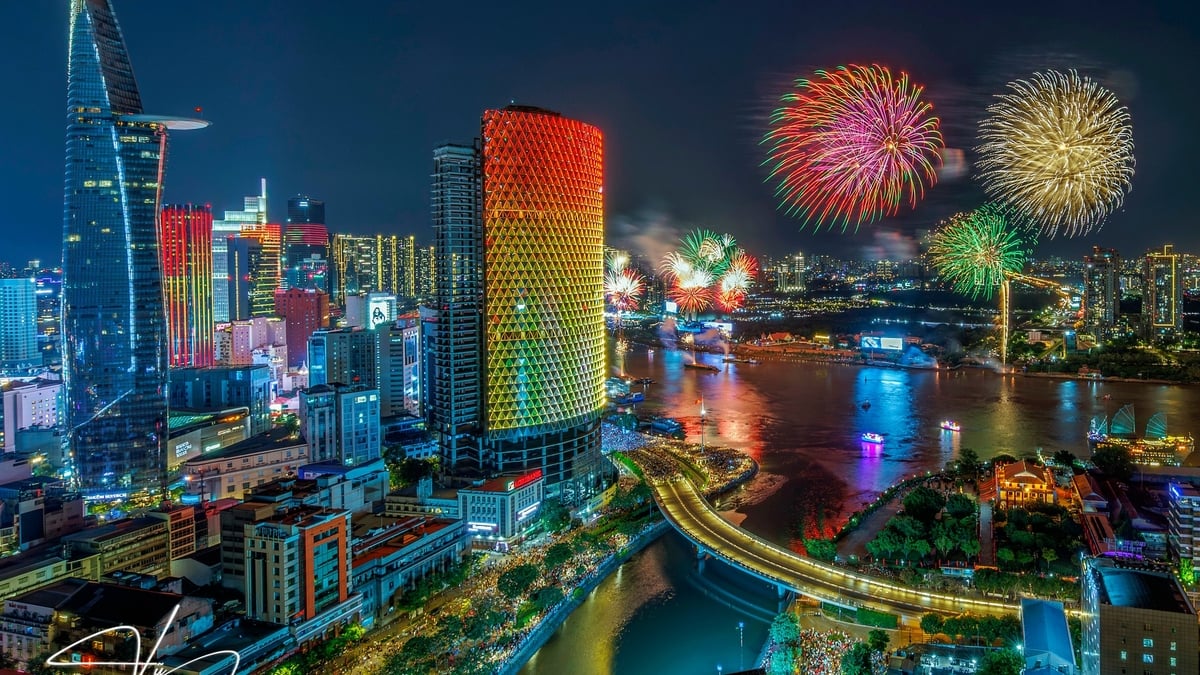



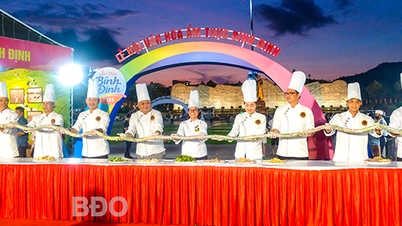







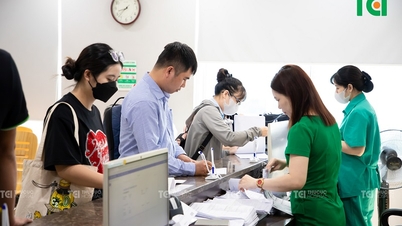

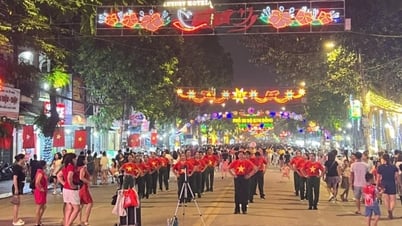
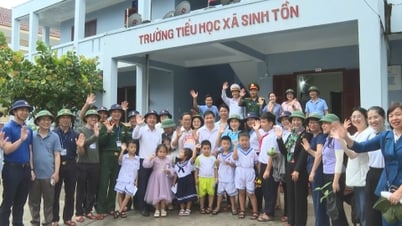
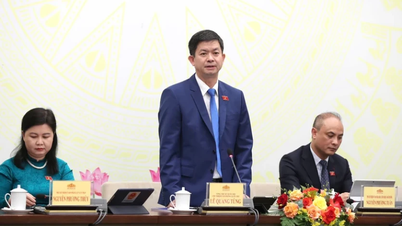
![[Photo] General Secretary To Lam receives Sri Lankan President Anura Kumara Dissanayaka](https://vphoto.vietnam.vn/thumb/1200x675/vietnam/resource/IMAGE/2025/5/4/75feee4ea0c14825819a8b7ad25518d8)
![[Photo] Bus station begins to get crowded welcoming people returning to the capital after 5 days of holiday](https://vphoto.vietnam.vn/thumb/1200x675/vietnam/resource/IMAGE/2025/5/4/c3b37b336a0a450a983a0b09188c2fe6)


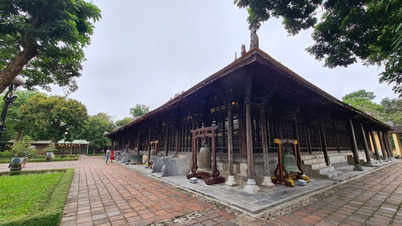




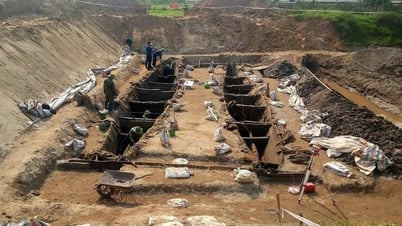








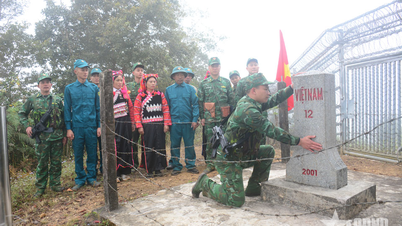

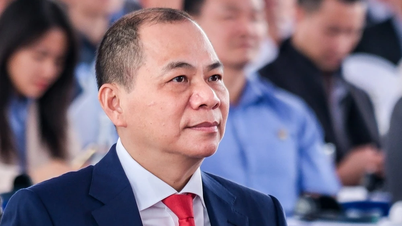

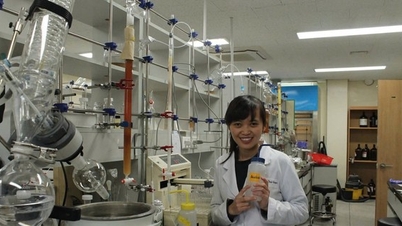









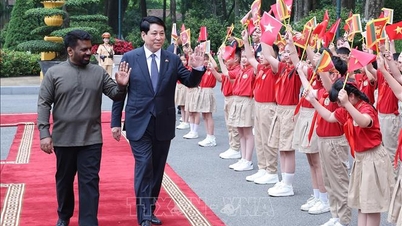

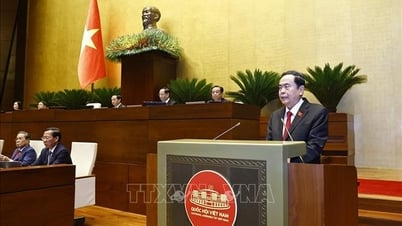
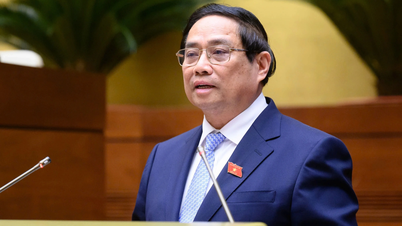
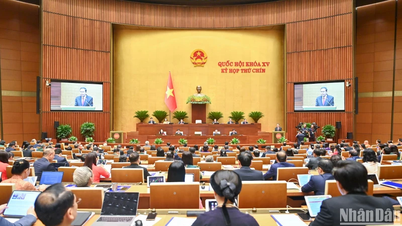


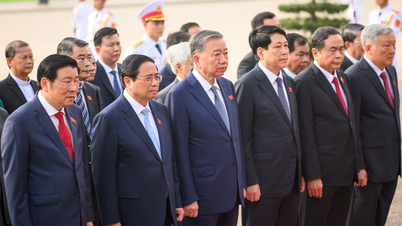
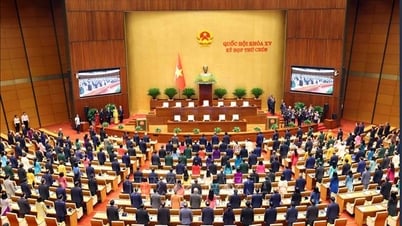







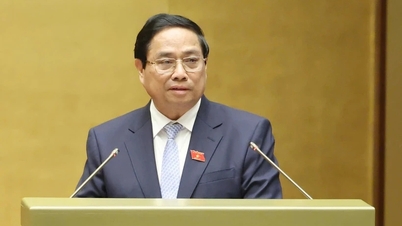






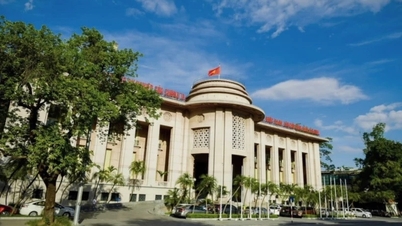














Comment (0)